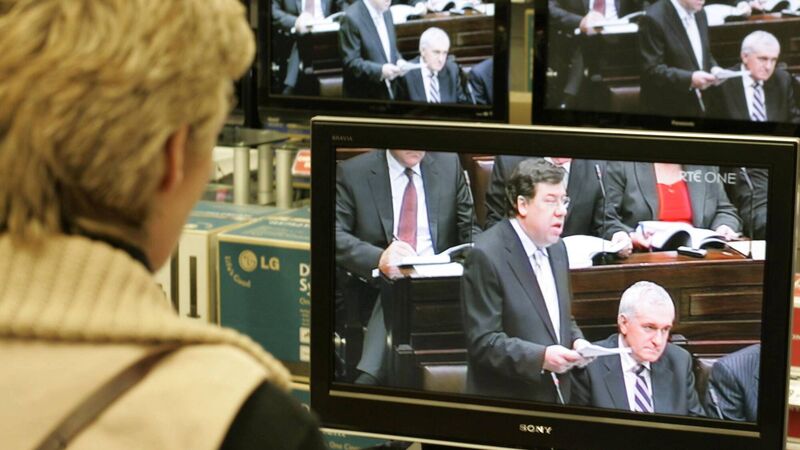Budget 2026: The music won't stop like it did after the crash — but the tempo has changed

A woman watches then finance minister Brian Cowen delivering Budget 2008. The people that Adam Maguire terms the 'bailout babies' have painful memories of two austerity budgets. File picture: Paul Sharp
If the skies overhead in the aftermath of Storm Amy seem clearer, that could be because of a lack of kites being flown.
In recent years, when the constituent members of the Fianna Fáil-Fine Gael-Green Party government were keen to push one another aside and claim credit for budget measures, those ideas would be in the media from, at the latest, August. There was much good news to go around and everyone wanted to ensure their names were all over it.
Check out the Irish Examiner's WEATHER CENTRE for regularly updated short and long range forecasts wherever you are.
















